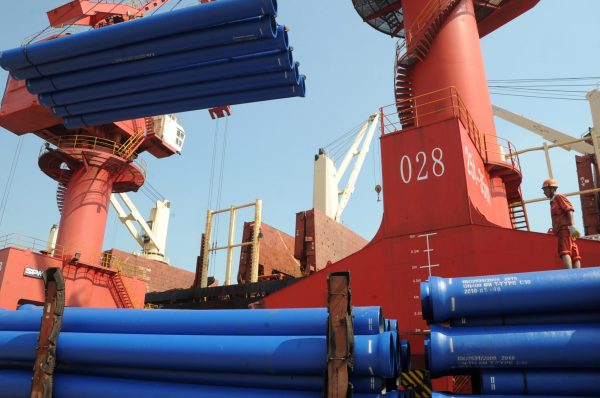China’s reforms coincided with an era of increasing globalisation, which was characterised by a more open global trading environment resulting from significant reduction in tariffs and other forms of trade protection. In the post-war period, these reforms were driven by various rounds of multilateral trade negotiations under the auspices of the General Agreement on Tariffs and Trade (GATT) and, later, the World Trade Organization (WTO). After the late 1980s, unilateral liberalisation in the Western Pacific region gathered pace under regional cooperation arrangements such as APEC.
The new era was marked by two key factors: rapid adjustment in the structure of world trade in response to more open cross-border flows of goods, capital, people and technology; and rapid reductions in transaction costs because of substantial improvements in transport, communication and information technologies. International markets presented China with opportunities far greater than those available during Japan’s and South Korea’s periods of extraordinary growth. China’s seizing of these opportunities has enhanced global interdependence to a degree the world has never seen before.
China’s integration into the global economy brought one-fifth of the world’s population into the international economic system, increasing market potential and integration to an unprecedented level. The increased scale and depth of international specialisation propelled by enlarged global markets offered new opportunities to boost world production, trade and consumption, with the potential for increasing the welfare of all countries involved. It promised an era of unsurpassed global economic growth and prosperity — a ‘golden age’ of world economic growth.
The promise of a golden age is now under a shadow. The era of globalisation is challenged, in part because of the shifts in the global economy and in global power that China’s trade and economic success delivered to the world; in part, because of deep structural problems and their mismanagement in other countries.
Today the global trading system has entered an age of uncertainty: the multilateral rules-based trade regime is under assault and the liberal economic order that has underpinned trade growth and global prosperity is under threat from its chief architect: the United States. No response to this uncertainty is more important than China’s.
Will China choose to hunker down on commitment to the global trade rules that have been the anchor of its remarkable, internationally-based economic growth over the past 40 years and respond to the challenge of Trump’s trade threats by accelerating economic reforms in its own best interests?
China has been a major beneficiary of the open trade and investment regime built by the United States. It is in China’s interest to maintain that international order, regardless of US actions today. As Yiping Huang has written, the ‘true meaning of economic development is to improve people’s living standards. China should remember this and never set the task of challenging or displacing the United States as its ultimate motivation for economic development. Facing US economic provocations, the Chinese government will have to retaliate from time to time. But it will focus more on commitment to continuing its own reform and opening up policies’.
These are fateful choices for China’s ambitions to maintain its high growth trajectory towards catching up with advanced industrial country income levels.
In our lead essay this week, coinciding with ANU’s China Update and the launch of its massive volume celebrating 40 years of Chinese economic reform, Ross Garnaut argues that the ‘conventional economic threats to growth are less daunting now than at any of the first three decadal anniversaries’.
‘The biggest risks for the decade ahead’, says Garnaut, ‘lie in the possibility of mismanagement by China and other major states of adjustment to China’s emergence as the world’s largest economy and, by many measures, its most powerful state’. But, he posits, with 10 more years of China’s economic reform, the 3 percentage point differential between US and Chinese growth rates would see the Chinese economy about twice as large as the United States’ by purchasing power, and moving towards twice as large by national accounts data.
Garnaut’s bullish scenario for the future of Chinese growth raises many questions about how the next phase of Chinese reform might be accomplished within China’s current domestic political system and a systemically-challenged international regime.
His conclusion is that ‘without careful structuring of the terms of competition [between political systems], it is likely to lead to suspicion and disruption, causing a failure of international cooperation at a time when it is essential for global peace and development’.
China’s commitment to the rules-based economic order through maintaining the momentum of its own reform as the United States seems bent on destroying it is a critical and present test of whether we might dare to hope that the pillars of international cooperation, essential to our future prosperity and security, are not torn down.
The EAF Editorial Board is located in the Crawford School of Public Policy, College of Asia and the Pacific, The Australian National University.

